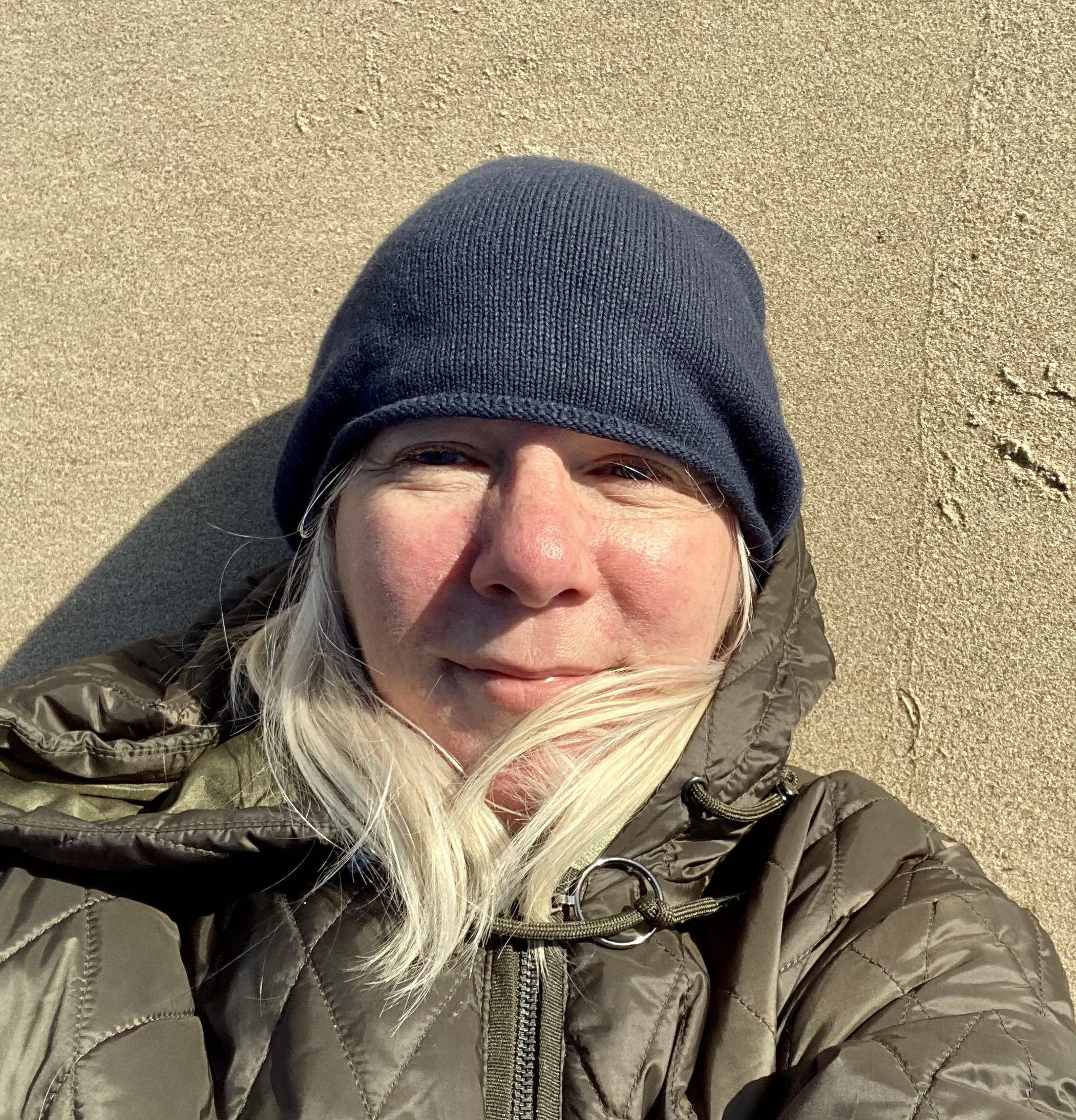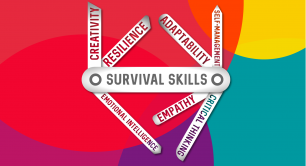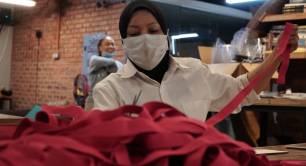Social Entrepreneurs’ Survival Skill no. 2: Adaptability
When things change suddenly, do you lean towards 'escape coping' or 'control coping'? Are you an adapter or an innovator? Explore ways to develop your adaptability – and set appropriate boundaries – as a social entrepreneur. Part two of our special series, with learning and development experts Emerald Works and Social Enterprise Academy, on the critical skills needed to flourish in a post-Covid landscape and beyond.
Adaptability has always been key to our survival — as a species, as organisations and in our working and personal lives.
Now we must adapt to a world that has undergone a severe shock in the form of Covid-19. The choice we face is to sail on the wave of change sweeping in, or to get left behind on the shore.
Which is where adaptability comes in. It’s being open to new ideas and situations. It’s rooted in continual learning, curiosity and innovation. As an individual, as a business or as an organisation.
- Interview: “I quickly realised this was an opportunity” – Diane Smith, Moray Way Association
- Resource: Six ways to develop your adaptability
- Download: Adaptability simulator: How would you respond?
Being adaptable means being flexible under rapidly changing external conditions. When you're flexible, you're versatile, resilient and responsive to change. You can adapt to unexpected demands in the workplace or to an unpredictable event.
On the other hand, being rigid, unresponsive to change, or unwilling to adopt new ways undermines our ability to succeed in the long run.
When you're flexible, you're versatile, resilient and responsive to change
Learning how to manage stress is also an important part of becoming more adaptable. When you're relaxed, you're able to withstand setbacks and focus more clearly. Keeping stress in check starts with how you look after yourself. Get a good night's sleep, try to keep to a routine and exercise regularly.
Coping with change
At its core, adaptability means coping with change – and people tend to cope with change in one of two ways: escape or control.
Escape coping is based on avoidance. You take deliberate actions to avoid the difficulties caused by the change. Control coping is positive and proactive. You gather support, and do whatever you can to be part of the new normal.
Most of us respond to major change with a mixture of the two. The key is to make a commitment to move forwards. But what you mustn’t allow is that others take advantage of your adaptability. That's why it’s vital to manage your boundaries.
Many people struggle to establish boundaries, held back by low self-esteem, a dread of upsetting people or a fear of conflict.
When we find the balance between pushing ourselves out of our comfort zone but not into panic zone, we learn and grow
But those who set strong personal boundaries empower themselves to exercise greater choice. They have a more robust sense of psychological safety and are generally happier and healthier. The key is to be assertive about your own boundaries, while considering those of others.
Some people may have an immunity to change: they consciously want to change and even outwardly agree to do so, but have an equally strong internal desire not to.
According to Dr Robert Kegan and Dr Lisa Laskow Lahey, immunity to change stems from deep-rooted assumptions and conflicting commitments. These internal barriers may be so entrenched that they are unconscious.
Of course, adaptability can be developed by anyone and applied in many situations, not just at moments of major change.
The Kirton Adaption-Innovation Inventory is a tool that measures how people solve problems and make decisions. Broadly speaking, adapters prefer a more methodical and organised approach. Innovators seek solutions by thinking outside of the box. One looks to do things better, the other differently. Both can be equally effective.
Harnessing team players and seeing the value in collaboration are further approaches that can also help organisations adapt to change.
When we embrace change, we intentionally put ourselves outside of our comfort zone. When we find the balance between pushing ourselves out of our comfort zone but not into panic zone, we learn, adapt and grow.
“I quickly realised this was an opportunity” – Diane Smith
 Diane Smith is a project manager at Moray Way Association, which promotes the Moray Way walking route in the Scottish Highlands, coordinates the Moray Walking & Outdoor Festival, and provides outdoor activities and education.
Diane Smith is a project manager at Moray Way Association, which promotes the Moray Way walking route in the Scottish Highlands, coordinates the Moray Walking & Outdoor Festival, and provides outdoor activities and education.
In 2020, Diane (pictured) took part in the Communities Leading in Tourism programme. She reconnects with programme facilitator James Hilder to discuss the topic of adaptability.
James Hilder: Diane, thinking about last year, what changed for you personally and for the organisation when the pandemic started?
Diane Smith: I was really worried in the beginning, even two weeks before the national lockdown. I actually remember crying just because I was worried about my family – and being type one diabetic, I wasn’t sure what was going to happen.
But I’ve always wanted the world to slow down so I could catch up, and I quickly realised this was an opportunity to do that. While I thought I would just be catching up on things, I actually really took time for myself and to think about what I wanted to do.
For the organisation, one of the things we learned was to be very quick and clear about information and get it out there as soon as possible. I think we actually sent out information on 19 March to audiences, event providers and volunteers to say we were going to cancel the walking festival for 2020.
JH: Obviously festivals up and down the country have been hit hard by Covid-19. What other ways did you adapt in terms of what you delivered last year?
DS: We had a project with Moray Council which was creating a very user-friendly digital library of all 150 walks on their Moray Ways website, so people would be able to quickly find a route if they were looking for a health walk or a challenging walk.
Because there was no festival, we [had the time to] quickly set this up. We also had volunteers go out and update the routes using GPS tracks so people could download the routes to their phone.
JH: It sounds like you pivoted quite quickly, not only in terms of sharing information but using that time to make sure the digital offer was up-to-date and partnering with the local authority to do that. Have you been able to access funds during Covid-19? Or was your organisation one that battened down the hatches waiting for better days?
DS: All of the above! We have gone into a financial agreement with Moray Council to set up the new site and maintain it. But we are also looking for funds to train more volunteers on how to take GPS tracks.
Towards Christmas time, Gil Martin from the Drovers' Tryst Walking Festival in Perthshire contacted me. And after a conversation with him, we realised we had the potential to help each other and have a bit of peer learning.
So we quickly set up a Zoom summit of the Scottish walking festivals online. We’ve had three meetings since Christmas and are really looking at how we can help each other with things like reciprocal promotion, which has been really successful so far. Also looking at how we can link with national campaigns, marketing, how we can raise funds to support with training or insurance, and how we can evaluate how much impact we are having within the community.
If I was in any other organisation, we wouldn’t be sharing who we get our insurance from or how we market our events. But because we’re all social enterprises or community-led organisations, and maybe because of Covid too, we have been sharing all of that information to the point where we’re thinking of even doing a joint insurance. I can’t think of any other sector that would share that much information.
Above: hikers on the 'Ghost Towns of Strathavon' walk, along the Moray Way in Scotland
JH: Were there any other changes you had to make in terms of how you worked? I know some people definitely struggled with change and others seemed to go ‘well, let’s go for it!’ – which seems like what you’ve done.
DS: At the beginning of this year, we were thinking of not running a festival and I was having a real issue about what to do next.
[But] there’s been a massive generation of ideas, probably because we had to slow down. People have been thinking about how we can make our user experience better on the Moray Way. In fact, one of our committee members has written a draft version of a companion book for the walk, something we can make downloadable.
There’s been a massive generation of ideas, probably because we had to slow down
I’m quite keen on the idea of a digital walking passport – on many of the long-distance walks you have a little paper passport that you can get stamped. With a digital passport, we can find out who exactly is walking the way and start building up a relationship with these people. Many people who walk the way, we never know who they are or exactly how many people do it.
JH: You aren’t the first organisation I’ve come across that has decided to use the time to reflect and regroup. Is that something that you felt comfortable with? Would you say you’re quite an adaptable person?
DS: I suppose I am, once I get over the shock of something – I’m probably the person who does the fire-fighting. I suppose what I’ve done is been the communicator to keep people together.
One of the members on the committee had Covid and has long-term effects. That’s been quite worrying – she is also one of the more active people who leads the walks and our festival. So [part of our role is] adapting so that she can go at her own pace as well. She’s been the one coming up with ideas of walks that don’t necessarily need to have someone leading them, but letting people go at their own pace using geocaching routes.
JH: Reflecting on the past year, what would you do differently?
DS: It’s interesting because I’ve been speaking to other people and organisations and no one, six months after the initial lockdown, sat down and said ‘OK, what have we learned?’, because we were always in a continual change.
There was never a period to stop, look back and learn for the future. But now we can, and we are doing that more. If we had to do this again, I think we would have taken a step back and looked at our values, mission and vision at the start and then we might have been more productive during Covid in terms of clarity on the direction we wanted to take.
Six ways to develop your adaptability
In her book, The Leader as a Mensch: Become the Kind of Person Others Want to Follow, educator, author and speaker Bruna Martinuzzi highlights six key ways to develop adaptability.
1. When you catch yourself shooting an idea down, take a moment to consider what mental scripts are influencing your behavior. Mental scripts are so automatic that you must decide intentionally that you want to challenge them.
2. Help your people distinguish between observation and inference, between fact and conjecture. Inference and conjecture can be influenced by mental scripts which don’t have a bearing on reality. Be the voice in the room that calls others’ attention to this possibility.
3. Do you habitually insist on going ‘by the book’? What would happen if you applied standard procedures more flexibly?
If you left tomorrow, what would your successor do to improve things? Consider making these changes yourself
4. Are you trading on old knowledge? Do you need to update your skills? Are you relying too much on your title as the sign of authority? We need to adapt by continually evolving and reinventing ourselves.
5. When we hold a position for some time, we may become accustomed to the status quo and fail to challenge it. It must be challenged for continued growth to occur. If you left tomorrow, what would your successor do to improve things? Consider making these changes yourself.
6. The Kirton Adaption-Innovation Inventory measures the way people solve problems and make decisions. Adapters prefer a more methodical and organised approach to problem-solving, and are more likely to seek a solution by working within a current framework. Innovators prefer a less orderly, more unconventional approach and are likely to seek solutions by thinking outside of the box. One looks to do things better, the other differently. If you want to know where your team is in this dimension, see the Kirton Adaptation-Innovation Inventory.
|
More tools and resources to develop your adaptability
|
Coming soon: how to use your imagination and lateral thinking techniques to develop alternative solutions when you’re stuck.




